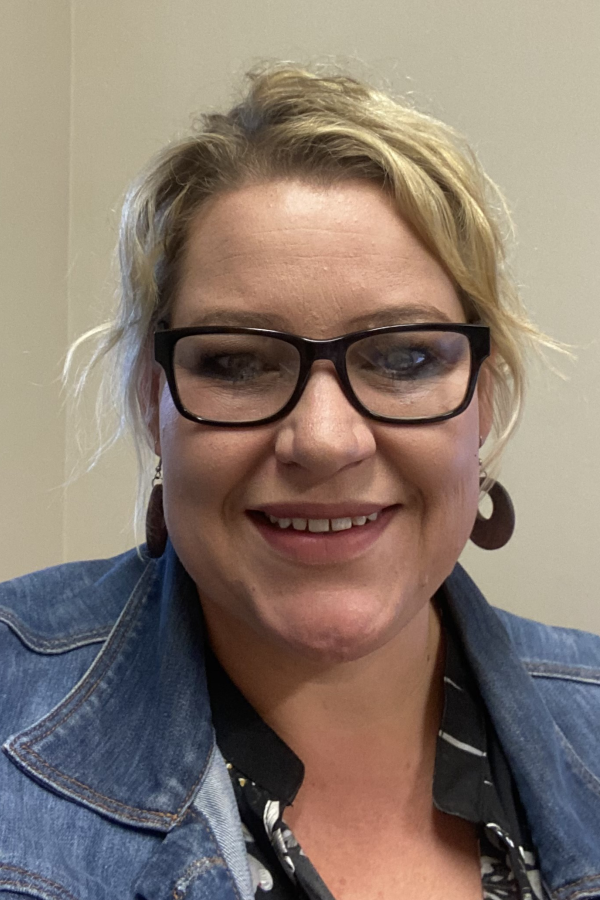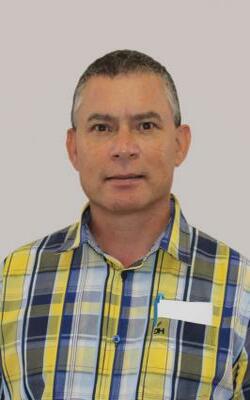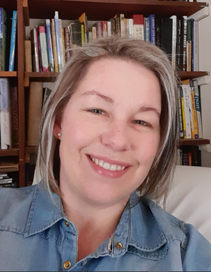Assessment to support Self-Directed Learning
Subarea leader: Prof Anitia Lubbe

Assessment can be used as a means to build sustainable capacity for SDL. Assessment to support SDL is deliberately designed to capitalise on the impact of assessment of learning, assessment for learning and assessment as learning. Assessment to support SDL should move from assessment of learning to assessment for learning and assessment as learning to inform teaching and learning. The subarea focuses on the construction of assessment activities that foster SDL capacities. We want to prepare students who are capable of self-evaluation and continuous learning throughout life. Assessment that is self-directed by the learners changes from teacher-initiated to self- and peer-initiated assessment practices. It could be utilised in multiple formats and methods including electronic, performance, portfolio and project-based assessment. The provision of timely feedback should be one of the most important purposes of assessment to support SDL.
Blended learning to support Self-Directed Learning
Subarea leader: Prof Chantelle Bosch

Blended learning is pervading education, compelling educators to confront existing presuppositions about teaching and learning in education. Leaders of higher education are being challenged to position their institutions to meet the connectivity demands of prospective students as well as their growing expectations and requirements for quality learning experiences. Given the increasing evidence that internet information and communication technologies are transforming societies, there is good reason to believe that this will be the defining transformative innovation for higher education in the 21st century. A blended learning approach provides innovative options to address the varying needs of the next generation within the framework that SDL provided.
Cooperative and Problem-based learning to enhance Self-Directed Learning
Subarea leader: Prof Aubrey Golightly
Cooperative learning is a well-planned, purposeful teaching-learning strategy where learners work together in small groups, in a harmonious manner, to realise their full potential and to assist their peers in the group to also reach their full potential in learning. It is a student-centred, active-learning approach that uses structured situations in which the group members interact in a non-competitive manner to accomplish a common goal. For cooperative learning to be effective and successful, the following basic elements have to be incorporated into each cooperative learning activity: positive interdependence, individual accountability, promotive face-to-face interaction, appropriate social skills, and group processing. In the process of working together students can develop skills that concur with the competencies of a self-directed learner. In this subarea we focus on expanding cooperative learning research that specifically sets out to enhance Self-Directed Learning (SDL).
Problem-based learning (PBL) is a teaching-learning strategy that provides students with an in-depth investigation of real-world problems. The point of departure is an ill-structured real-world problem with no obvious solution. PBL is a student-centred active strategy and is facilitated by the lecturer or teacher. PBL can be organized around the solution of real-world problems, development of projects or addressing of cases. PBL is mainly applied in teams where all members are responsible for solving a problem or developing a project. It requires critical, innovative and reflective thinking as well as individual accountability, interpersonal skills and collective ownership. Working in teams may provide opportunities for the development of various skills which enhance independent and responsible learning. A particular focus in this subarea is on case-based teaching within pre-service teacher education, and how this could address the so-called theory-practice divide, and provide student teachers with a more nuanced understanding of the teaching profession.
Cognition and metacognition to enhance Self-Directed Learning
Subarea leader: Prof Bernadette Geduld

Cognitive strategies are the basic mental strategies we use, for example, thinking, learning, recalling information from memory, making inferences, interpreting and comprehending text, or solve a problem. Metacognition acts upon cognition, and regulates the process and product of cognition and performance, and is used to understand the cognitive strategies when one solves problems or executes a task, is aligned with learning to learn, and can be differentiated from cognition by the action of awareness and self-regulated processes. Self-regulated learning is understood as learning and motivational processes that underlie students’ assumptions of personal responsibility to learn. The tendency to think about a task – producing a metacognitive conceptualisation of the task – and to use metacognitive knowledge and self-regulation is called reflection. Cognitive strategies help an individual achieve a particular cognitive goal, and metacognitive strategies are used to ensure that the goal has been reached. Cognitive and metacognitive strategies may overlap in the same strategy, for example, one can use self-questioning while studying as a means to obtain content knowledge, and as a way of monitoring progress and understanding what and how you are studying as a result of receiving feedback from other cognitive strategies. Constructs and strategies (goal setting) developed elsewhere and desirable study habits are adopted to help students learn more effectively. Therefore, effective reasoning depends on the concurrent development of both cognitive and metacognitive knowledge and skills. This subarea conducts research on cognition and metacognition with the specific aim to promote self-directed learning.
Indigenous knowledge and contextualised learning to enhance Self-Directed Learning
Subarea leader: Prof Neal Petersen

Self-directed learning research should focus on the individual learner. The question could be asked whether marginalised learners are provided the same opportunities to develop as self-directed learners. This subarea focuses on (often marginalised) indigenous knowledge holders as well as on learners who experience learning barriers that could inhibit the development of self-directed learning skills. The holders of indigenous knowledge were and are often self-directed learners, but can be overlooked in the context of multicultural education. It could therefore provide researchers with insight into self-directed learning by focusing on the nature of indigenous knowledge and its holders. The current science curricula and pedagogical strategies applied by STEM teachers globally focus on understanding the nature of science from Western worldviews, and by doing so, ignore those of indigenous learners in the culturally diverse classroom. This might lead to underperformance by learners. In this subarea, the focus is also on epistemological border-crossing to explore the nature of complex phenomena. Amongst others, the role of arts in the natural sciences is explored, specifically by using puppetry to teach complex phenomena such as indigenous knowledge or ethical issues related to the sciences. This subarea also embarks on research that focuses on teacher agency to overcome systemic barriers in education, such a lack of resources, and how science-on-a-shoestring kits could be used to promote science education. Third-generation Cultural-Historical Activity Theory (CHAT) is used as a research lens.
Scholarship and praxis for Self-Directed Learning
Subarea leader: Prof Charlene du Toit-Brits
In this subarea, our research builds on the theories underpinning SDL in all education sectors. We focus on how SDL can be conceptualised within curriculum transformation, development, design, and implementation. Curriculum transformation within the context of SDL implies a process of learning that create a deep change in learning behaviour, attitude and practice of an independent individual within a challenging environment for the development of SDL skills. The ways in which the curriculum domains of development, design and implementation can support SDL should be further researched. Our research aims to inform the 21st century workplace and learning environment in order to enhance lifelong SDL. Without a thorough knowledge of theories and praxis of SDL, it is not possible to inform scholarship on SDL within the unique South African landscape.
Play-based Self-directed Learning
Subarea leader: Prof Byron Bunt

"Pedagogy of play" emphasizes the educational benefits of play by arguing that play describes the two essential principles that are at the foundation of education; spontaneous and natural direction on the one hand, and intention, on the other hand. There has been a lack of research on teaching via play, despite the fact that there is a lot of research on learning through play. The unwavering stance to free play and free choice has long made the connection between play and education a difficult issue. Pedagogies of play is viewed as a vehicle to facilitate self- directed learning. Although there have been some recent theoretical and legislative shifts, it is now more important to better understand the various objectives and nature of play in educational settings, as well as the role of educators in preparing for and being involved in student- and facilitator-initiated tasks. This subarea will lead the development of the theoretical foundation of pedagogies of play, as well as the natural links to develop SDL. The subarea focuses on using play-based strategies, such as puppetry, drama and storytelling, game-based learning, and gamification, as well as educational building blocks and robotics to enhance self-directed learning.
UNESCO Chair on Multimodal Learning and Open Educational Resources
Prof Dorothy Laubscher

The establishment of a Chair on Multimodal Learning and Open Educational Resources (OER) within the Research Unit Self-Directed Learning at the North-West University (NWU) was approved by UNESCO in 2018. The research for this Chair focusses on Open Educational Resources (OER) (peer-reviewed shared online resources that include material, books, videos, lessons and even full courses) and Multimodal Learning (also sometimes described as blended learning where face-to-face and e-learning modalities can be mixed. The purpose of the Chair is to (1) build networks in Southern Africa around OER and multimodal learning, (2) build capacity at the NWU and in Southern Africa, (3) train lecturers in multimodal learning and the creation and use of OER, as well as (4) doing research on OER and multimodal learning.
